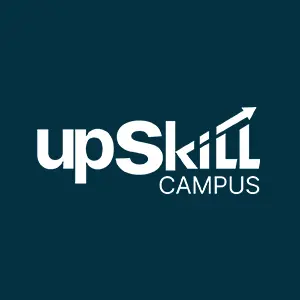Guide to PHP Programming Language - Beginner Tutorial

By Upskill Campus
Published Date: 26th August, 2024 Uploaded By: Ankit Roy
PHP programming language is a core language that makes websites interactive and fun. It is widely used behind online shopping carts, user logins, and dynamic content. Whether you're just starting or a seasoned web developer, this guide will teach you how to use PHP to create amazing things on the internet. Moreover, we will discuss its uses, syntax, and much more. You only need to maintain focus and carefully comprehend each section to become an expert.
Understanding PHP Programming Language
PHP is a super-helpful tool for building websites. It's been around for a long time and is good at making websites do remarkable things. In short, PHP is the brains behind the scenes, ensuring everything works smoothly.
PHP is an advanced programming language because it communicates to computers, not people. In addition, it lives on servers and does all the heavy lifting while you enjoy the finished website on your phone or computer. Moreover, it's perfect for creating websites that change based on different users or information, like online stores or social media sites.
PHP coding is easy to learn and use, and there are lots of libraries and frameworks to make your job easier. Additionally, it works well with other website-building tools like HTML, CSS, and databases. So, if you want to create amazing websites, PHP is a fantastic choice!
What is PHP Programming Language Used For?
PHP programming language can create web pages that change based on different visitors or situations, like showing different products to returning customers. It can also manage files on your website's computer, like storing images or updating text. When you fill out online forms, PHP is often the behind-the-scenes worker collecting and processing your information. It can also remember your preferences using small text files called cookies.
Moreover, if your website needs to store lots of data, PHP can efficiently manage it using databases. To keep your website secure, PHP can control who can access different parts of it and protect sensitive information. Plus, it's not just for text; PHP can create images, PDFs, or other digital content. That’s why it assists developers in learning PHP.
Top Uses of PHP Language
Here, we will define some of the common reasons for choosing this programming language under this PHP tutorial for beginners.
- PHP is highly compatible with all operating systems, such as Windows, Mac, Linux, Unix OS X, etc.
- This programming language is competent enough for almost all servers used today (Apache, IIS, etc.)
- It supports a comprehensive range of databases
- PHP is free.
- PHP programming language is easy to understand and runs smoothly on the server side
Advantages of PHP
Now, it’s time to go through the benefits of PHP Programming language.
- Open and Accessible: PHP is freely available to everyone, and you can use it on almost any computer. As a result, this makes it a popular choice for developers worldwide.
- PHP Server-Side Scripting: PHP is a behind-the-scenes worker. It handles the complex tasks of running your website while you focus on creating a great user experience. In short, your website can load faster and respond to visitors more efficiently.
- Interpreted language: PHP is excellent at communicating with databases. In addition, PHP can quickly find, add, or change data, making your website dynamic and informative.
- Built-in Tools for Success: PHP comes with a toolbox of pre-built features to help you build your website faster. These tools can handle everything from simple tasks like displaying text to complex ones like managing user accounts.
- Keeping Your Website Safe: Security is important, and PHP has features to protect your website from harm. In addition, it helps keep your visitors' information safe and prevents unauthorized access.
In other words, PHP basics is a versatile and powerful tool that makes building websites efficient and enjoyable.
Applications of PHP Language
The following section will describe various applications.
-
- Server-side web development: Server-side development builds the website's framework and structure. It's all the work that happens behind the scenes before you can see the finished website.
- Content Management Systems (CMS): Someone else has already figured out how to build a basic house, and you can use that as a starting point. You can customize it with your style and furniture (content), or you can just use it as it is.
-
- E-commerce Websites: E-commerce is like having an online store. You can buy and sell things without going to a physical shop.
- Database-Driven Applications: A database stores all the important information. A database-driven website uses this filing cabinet to show you the right information at the right time.
- Web APIs: A web API tells other websites or apps what kind of information they can get from your website. In other words, it shares your website's ingredients with others so they can create something new with them.
Examples of PHP Programming
Here, we will discuss a prominent example of PHP Programming language.
// Connect to the database
$mysqli = new mysqli("localhost", "username", "password", "database_name");
// Check for errors
if ($mysqli->connect_errno) {
echo "Failed to connect to MySQL: (" . $mysqli->connect_errno . ") " . $mysqli->connect_error;
}
// Execute a query
$result = $mysqli->query("SELECT * FROM users");
// Loop through the result set
while ($row = $result->fetch_assoc()) {
echo $row['username'] . ": " . $row['email'] . "
";
}
// Free the result set
$result->free();
// Close the connection
$mysqli->close();
PHP Code Examples
It’s time to understand the syntax of the PHP Programming language. Go through the upcoming section.
// PHP code goes here
?>
The above code is stated as the basic syntax.
My first PHP page
echo "Hello World!";
?>
It is an example of a PHP programming language.
ECHO "Hello World!
";
echo "Hello World!
";
EcHo "Hello World!
";
?>
Now, we will discuss some common examples that will help you to understand the programming language in detail.
Example 1:
$color = "red";
echo "My car is " . $color . "
";
echo "My house is " . $COLOR . "
";
echo "My boat is " . $coLOR . "
";
?>
Example 2:
class Dog {
// Properties
public $name;
public $breed;
public $age;
// Constructor
public function __construct($name, $breed, $age) {
$this->name = $name;
$this->breed = $breed;
$this->age = $age;
}
// Method
public function bark() {
echo "Woof!";
}
}
$dog1 = new Dog("Fido", "Labrador", 3);
Our Learner Also Read: Guide to Flutter Programming Language - Full Tutorial
Wrapping Up!
PHP programming language is a versatile and powerful tool that has been the backbone of countless websites for years. Its ease of use, coupled with its ability to handle complex web applications. Moreover, it is a popular choice for developers of all levels. From small personal blogs to large-scale e-commerce platforms, PHP's flexibility shines. While it has its challenges, its open-source nature, vast community, and continuous evolution ensure it remains a relevant and valuable tool in the ever-changing world of web development.
Frequently Asked Questions
Q1. What does PHP stand for?
Ans. PHP stands for "Hypertext Preprocessor." Originally, it stood for "Personal Home Page," but it was later changed to reflect its broader use.
Q2. Is PHP an HTML Language?
Ans. No, PHP is a server-side scripting programming language.
About the Author
UpskillCampus provides career assistance facilities not only with their courses but with their applications from Salary builder to Career assistance, they also help School students with what an individual needs to opt for a better career.





Leave a comment